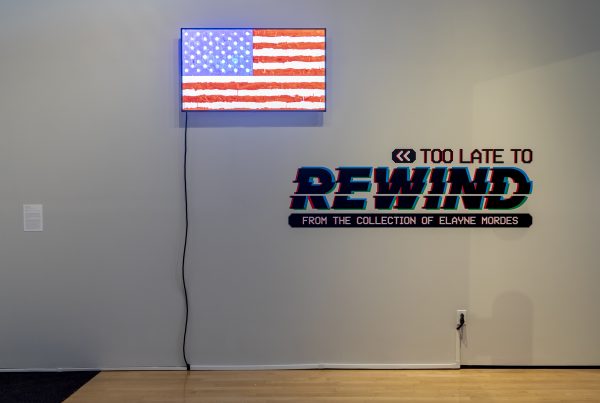
Paul Weitz’s “Grandma” is a daylong road movie with an unceremonious destination: an abortion clinic. High-schooler Sage (Julia Garner) has been knocked up. She’d like to terminate the pregnancy, and has made an afternoon appointment to do so, but she doesn’t have any money.
Too ashamed to ask her chilly, judgmental mother Judy (Marcia Gay Harden) for a loan, she instead plies her grandmother, the widowed lesbian and Old Guard feminist academic Elle (Lily Tomlin), for the $650, only to realize grandma is in a worse emotional and financial place than she is: Elle is on the skids with her younger girlfriend and protégé (Judy Greer), and she’s broke after cutting up her credit cards in an act of capitalist defiance. So the two malfunctioning kin sputter the elder’s jalopy through the Los Angeles sprawl, visiting Elle’s estranged friends and lovers in hopes to cobble together the cash in time for the 5:45 appointment.
There’s something transparently schematic about this scenario, which represents the kind of conceptual, culture-clashing, let’s-all-learn-something-about-ourselves structuralism that Sundance and boutique distributors love. It allows its inadvertently soul-searching protagonists the opportunity to encounter all walks of offbeat life, from a flamboyant tattoo artist (Laverne Cox) to the owner of a feminist cafe (Elizabeth Pena) to Elle’s old flame Karl (Sam Elliott), whom she left on the proverbial floating alter decades earlier, after a few months of hetero experimentation on his boat.
“Grandma” goes the places it needs to go—emotionally, spiritually, culturally—with a degree of plausibility, if not probability. Clocking his movie in at a svelte 78 minutes, Weitz still finds it necessary to heal everything about his characters’ decades worth of fraught relationships in less than 24 filmic hours, a tall order that is only marginally successful.
“Grandma” still works because the characters existing within this familiar, sentimental structure are real—starting with Tomlin, whose impassioned embodiment of Elle seems cut from her personal history as a dedicated feminist activist with a longtime same-sex partner. Her dialogue, tailored to this particular actor at this particular stage in life, is delivered with a breezy, improvisatory, second-skin comfort that’s no better than in her “Five Easy Pieces”-style confrontation with a coffeeshop owner early on. We like her even when she’s a poorly functioning bitch.
Garner is perfectly convincing as her granddaughter, seemingly destined to repeat Elle’s mistakes a generation removed. Sidestepping the stereotypes of teen girls on film, she’s neither a whip-smart wisecracker nor a directionless slacker; she’s just a B student who made a mistake. Harden is brilliantly malicious as the go-between both fear and avoid, and for good reason, grounding Judy’s callous workaholism and ultimately crafting a sympathetic character.
This is why it’s easy to pull for these people. “Grandma” is a sporadically funny and touching account of three complicated women, in a Hollywood factory that offers scant few of them. Moreover, it’s a film that understands the toll one generation’s neglect can place on the next. Its solutions for these problems are probably too easy, but the recognition alone is laudable.
“Grandma” opens Friday at most area theaters.

“Best of Enemies” has a good chance of being political wonks’ favorite movie of 2015. It chronicles a signal event in the convergence of politics and news media—the 1968 televised debates between liberal firebrand Gore Vidal and conservative standard-bearer William F. Buckley Jr.—that popularized the idea of politics as blood sport.
Both men are now dead, of course, so in addition to video of the debates, co-directors Robert Gordon and Morgan Neville cleverly enlisted the left-wing John Lithgow and the right-wing Kelsey Grammar to read the words of Vidal and Buckley, respectively. They also interview wise, witty wags from the late Christopher Hitchens to Frank Rich and Dick Cavett, all of whom comment on the commentators. But the film draws most its riotous power from the stock footage of these men in the debate chairs, dueling with words instead of muskets against the backdrop of one of the most tumultuous years in national and global history.
What makes this film such a blast is that there’s no winking humor behind the title: Vidal and Buckley clearly despised each other to the very fibers of their being. This wasn’t the jovial, platonic needling of Bill Maher and Ann Coulter, nor were they anything like the apocryphal Senators of yore, who would vigorously debate issues in Capitol Hill and then share drinks at the Hawk and Dove. Each man, convincing in his strident arguments and personally vindictive in his acid-tongued attacks, saw the other as the smiling antichrist, the irredeemable avatar of the country’s ills.
Gordon and Neville have pulled off the miraculous feat of respecting both men’s ideologies, achieving something like balance. Viewers sympathetic to Buckley will see in Vidal a mean-spirited opportunist and provocateur resorting to ad-hominem barbs. Vidal’s followers will interpret Buckley as a dog-whistle-blower, a proto-Donald Trump with a thesaurus: One prescient commentator decries Buckley for galvanizing “angry white ethnics in a time of mounting racial unrest.”
Neville and Gordon inform us that the 10 debates, which aired primetime on ABC to supplement its coverage of the Republican and Democratic National Conventions, were launched by the sagging network as a ratings ploy (Frank Rich hilariously critiques the ABC of 1968 as “the Budget car rental of television news”). The gamble worked; viewers flocked. Cue the compact summation from one interviewee that the debates “changed television forever.”
I’m not sure this was the case. Buckley had been hosting contentious interviews with liberals for the previous two years on his pioneering “Firing Line,” as Gordon and Neville mention. But the success of the Buckley-Vidal debates busted wide the doors of the political talk radio and talk television insurgency, which may otherwise have creaked open at a more deliberate pace.
And yet, these days, a debate like this probably couldn’t exist. Can you imagine Charles Krauthammer and Paul Krugman captivating audiences with the kind of charisma that propelled these patrician intellectuals to must-see TV? Moreover, debates today don’t address issues. The farce that was the first Republican debate this election season was such a shallow beauty contest that the word “debate” should be a misnomer.
Ironically, Vidal said much the same thing toward the end of his 10-round scrimmage with Buckley, dismissing it as a trivial entertainment that could not, by its inherent nature, provide the vigorous policy nourishment the nation needed. I wonder if Lincoln and Douglas secretly thought the same thing.
“Best of Enemies” is now playing at Living Room Theaters at FAU, and it opens Friday at Lake Worth Playhouse.

For a powerful foray into the lingering after-effects of Nazism in the present day, check out “The Art Dealer,” the latest mystery from French director Francois Margolin (who co-wrote Hou Hsiao-Hsien’s lovely “Flight of the Red Balloon”). The sensibilities of film noir, a genre that in many ways rose from the darkness of the Second World War, hang over an otherwise contemporary drama. Donning an antiquated trench coat and fedora, and possessing the uncommon ability to make cigarettes look sexy again, Anna Sigalevitch plays Esther, a driven magazine reporter whose latest investigation stirs up cobwebs in her own family tree.
After her husband, an art dealer, brings home a painting that rattles her father, Esther discovers that the work in question was painted by her grandfather Jean, an artist and collector executed by the Nazis. Like so much art raided by the Third Reich, Jean collection was dispersed and deprived from his heirs, and Esther discovers that certain shady relatives—snakes in three-piece suits—colluded in destroying her grandfather’s estate.
Margolin approaches this sturdy, plot-heavy story with no detail unturned, and “The Art Dealer” demands a novelistic patience that most movies do not require. Immerse yourself in it, though, and you’ll come to appreciate its quiet menace, its domino-like ripples when inconvenient truths are unearthed. The movie evokes a timeless question—should past traumas be confronted, or ignored?—and its end result is, finally, quite moving.
“The Art Dealer” opens Friday at Movies of Delray, Movies of Lake Worth and The Last Picture Show at Tamarac Cinema 5.







